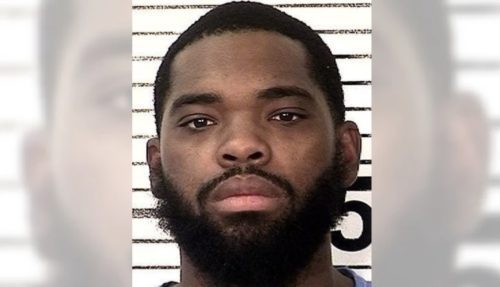The appeals court decision “would likely create a new avenue to challenge the convictions,” says a spokesman for the district attorney
A state appeals court has vacated the murder conviction of a San Bernardino gang member associated with a 2014 drive-by shooting, ruling that a rap video he appeared in was harmful and should not have been accepted as evidence at his trial.
It is the first criminal conviction in California to be thrown out under a new law that requires judges to consider “forms of creative expression” (explicitly rap lyrics and music videos) that could be racially biased and harmful to defendants. before admitting them into evidence at trial, said Jacquelyn Rodriguez, spokeswoman for the San Bernardino County District Attorney’s Office.
Travon Rashad Venable, 34, of San Bernardino, was convicted in 2018 and sentenced to 129 years to life in prison in connection with the shooting of Enon Damon Edwards, 20, and the wounding of another man in a drive-by shooting at Medical Center Drive and Union Street in San Bernardino on March 5, 2014.
Venable was the alleged driver of the white Kia used in the crime. Under a plea agreement, co-defendant Elgin Johnson, 28, the alleged shooter, testified guilty to voluntary manslaughter in December 2019 and was sentenced to 22 years in prison.
‘New way’ for court challenges
Defense attorney James Gass, who represented Venable, said in a phone interview that the prosecution’s case relied particularly on the rap video evidence.
At first, a witness came forward in 2014 and identified Johnson and Venable as the alleged perpetrators. the agents presented that evidence to prosecutors, who declined to press charges. The case ”declined” for two years, until investigators found the music video and felt they had their clincher.
New law
The law that took effect in January, Assembly Bill 2799, added a new section to the Evidence Code that requires trial judges to examine specific factors before recognizing evidence of a form of creative expression in a proceeding. penal. This was designed to avoid pushing racial bias.
When the presiding judge in Venable’s trial authorized the video evidence, it demonstrated everything the new law was designed to prevent, according to the opinion delivered Friday, February 17, by the three-judge panel of the United States Court of Appeals. Fourth Ward, in Riverside.
“There is no question that the trial judge’s admission of evidence of rap, in this case, did not meet the new requirements for admission of creative expression. There is also substantial concern that admitting the evidence may have had the precise effects the Legislature sought to avoid,” added Judge Marsha Slough, which was agreed by Justices Manuel Ramírez and Frank Menetrez.
Slough concluded that it was “clear that the prosecution used that evidence to link Venable to the specific crime.”
Rap video
The video contains offensive language, including frequent uses of the N-word, depictions of drugs and weapons, and references to violent gang activity. Most of the people in the video are young black men.
Venable did not comment on the video, although he was seen holding a rifle with an extended magazine. 22 caliber rifle was one of the firearms used in the 2014 drive-by.
The lyrics usually contained nothing to do with the shooting, although one line could be interpreted as a reference to the shooting: “I got word from a bird that they did that (racial slur) totally wrong/Slid up on Medical and left that (racial slur) head missing.”
The appeal judges, however, agreed that nothing in the song indicated that the rapper and others in the video had knowledge of the shooting. Still, the prosecution placed a lot of emphasis on the video, playing it twice for the jury during the trial.
“To close, the prosecutor argued: ‘There he is (Venable). There is. They are killed on the scene. They kill. I went up to Medicine, left that head (racial slur) gone. That’s the murder of our victim. There is. There it is (Venable). There it is,’” Slough said.
Watch the video for Young Trocc’s rap song. (Violent language/content)
Weak evidence
The judges agreed that the video was prejudicial and that the remaining evidence for the prosecution against Venable was lacking.
“The remaining evidence of Venable’s involvement was not strong. The only witness who identified him as involved was Doe, a police informant who gave a number of conflicting accounts of the incident and had testified that Venable was being framed,” according to the opinion. “Meanwhile, Venable’s aunt provided an alibi and Venable testified that he was not involved in the shooting. The prosecution’s emphasis on the rap video at various points in the trial, including closing arguments, likely had an effect on the outcome.”
Racial justice law
Venable’s conviction was the first in California to be overturned under AB 2799. The Racial Justice Act prohibits the state from seeking a criminal conviction or sentence based on race, ethnicity or national origin.
Both the Racial Justice Act and AB 2799 are retroactive, meaning that it may be possible to apply to criminal convictions before passing both laws.



